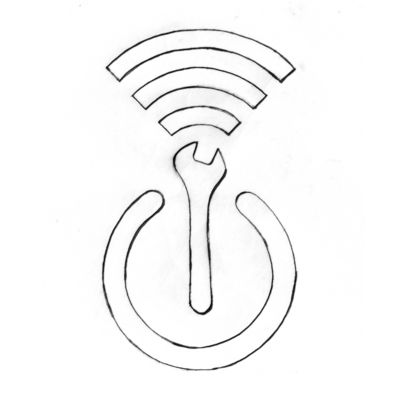A bi-weekly talk show by The Restart Project, plus a monthly documentary series produced by brilliant podcaster Dave Pickering, based on fixing triumphs, heartbreaks and wisdom shared at our community repair events – called Restart Parties – here in London. We go into real depth about good and bad design, obstacles to repair of electronics, emotional aspects of ownership, environmentally irresponsible business models, and the “end of life” of our gadgets. This podcast is for you if you'd like to fix your relationship with electronics. Let’s rethink, restart.
https://therestartproject.org/podcast/
Restart Radio: Our 2020 Summer Reading List
On July’s episode, we hear from several members of the Restart Team with their reviews of books for our summer reading list. First, though, we discuss the current inquiry on electronic waste by the UK Parliament’s Environmental Audit Committee. In late June, Ugo was invited to give oral evidence at a hearing of the EAC. He shared how right to repair regulation can help prevent e-waste, and how manufacturers around the world have been systematically undermining campaigners’ efforts in this respect.
Before we jump into our reading recommendations, Ugo and Holly discuss some key takeaways from the hearing of the EAC inquiry. We listen to quotations from Jim Puckett of Basel Action Network, Libby Peake of Green Alliance, and a short exchange between Ugo and Nadia Whittome MP. Discussing these, we discuss how the focus needs to be shifted from recycling to extending the lifecycle of electronics, especially as the disposal of electronics is harming the planet more often than we are aware. In addition, we emphasise again the need for the right to repair to prevent device obsolescence.
Our summer reading list Design Justice: Community-Led Practices to Build the Worlds We Need by Sasha Costanza-ChockFirst up for our reading list reviews, James tell us about Sasha Costanza-Chock’s book Design Justice: Community-Led Practices to Build the Worlds We Need. In the book, Costanza-Chock follows the design process from origin to output. The book examines how design traditions have developed, how they interact with the world around them, and their socio-historical effects. James highlights the importance of considering design as a political act and becoming aware that most devices and objects are not necessarily designed with everyone in mind. He highlights also that the fourth chapter of the book – ‘Design Sites: Hackerspaces, Fablabs, Hackathons, and DiscoTechs’ – may be of specific interest to our Restart community.
Hello World: How to be Human in the Age of the Machine by Hannah FryNext up is Neil’s review of Hello World: How to be Human in the Age of the Machine by Hannah Fry. Fry’s book focuses on the increasing prevalence of decision-making algorithms in our daily lives and aims to inform us on how these may be influencing and shaping our society in unseen ways. While Neil stresses that this book is not anti-algorithm, he tells us of Fry’s integral examination of how bias is built into these systems, both knowingly and unknowingly – simultaneously mimicking and advancing dangerous societal power structures.
The Case for the Green New Deal by Ann PettiforUgo shares a glowing review of Ann Pettifor’s The Case for the Green New Deal, a book that he had been wanting to read for a while and he was not disappointed. Pettifor accentuates the fact that we desperately need true system change if we want to respond effectively to climate change. She calls for change to financial systems and the way that we are programmed in regards to consumption. This volume surely speaks to many of the issues discussed at the top of the show, and helps explain why activists should not underestimate the role of finance if we want to make a real impact.
Finally, Janet shares her thoughts on Lo-TEK, Design by Radical Indigenism by Julia Watson. The book focuses on how we can learn from indigenous approaches to design in order to develop more sustainable infrastructure. Janet’s main criticism of the book is the lack of indigenous voices actually included in this discussion and the feeling that it operates more as an outsider’s view on how these concepts can be adapted. Still, Watson holds space for an important conversation about how TEK – or Traditional Ecological Knowledge, as coined by Eva Marie Garroute – can lead us to a positive change in our technological trajectory.
Links:
- Our blog post on the EAC hearing
- Listen to the full hearing here
- Design Justice by Sasha Costanza-Chock
- Hello World by Hannah Fry
- The Case for the Green New Deal by Ann Pettifor
- Lo-TEK by Julia Watson
The post Restart Radio: Our 2020 Summer Reading List appeared first on The Restart Project.
